What if a baby is 10 or 11 months old (or even older) and still has no teeth?
Here, Medical Doctor Sarah Livelo answers a worried mom and explains when late tooth eruption is considered normal and not, the common reasons for late tooth eruption, and when to contact a doctor or pediatric dentist if your baby has no teeth.
My baby has no teeth! She is 11 months old I see no signs at all of her teeth yet. Not a sign of teething at all! Is this normal or something I should worry about?
Late Baby Tooth Eruption: Causes and Concerns
What is DELAYED VS NORMAL baby tooth eruption?
Most babies get their first tooth before 11 months old, but not all.
The most common age babies get their first teeth is 9 months old. It can start as early as 3 months or as late as 12 months old. Usually, the front teeth come out first, followed by the molars and then the canines. Your child will most likely have all their baby teeth by the time they turn 3 years old. Boys tend to be teething slightly later than girls.
You might be thinking that 11 months is somewhat late, but your child is still within the expected age range. If you’re worried, it’s best to bring it up with your daughter’s healthcare provider at your next regular visit.
Or better yet, bring her to a pediatric dentist so they can also have a preliminary examination. After all, it is recommended that the first dentist visit is when kids get their first tooth or when they turn 12 months old.
I know at least in some places, several parents usually get an appointment just to check that nothing is wrong with the teeth buds, especially when your baby hasn’t gotten their first tooth by the first birthday. In other places, the recommendation is to pay a visit to a pediatric dentist if your baby still has no teeth at 18 months old.
If your baby’s about to turn a year old soon with no tooth in sight, read on to know why their teeth aren’t showing up yet.
Reasons for Late Tooth Eruption
In some cases, the reasons for late tooth eruption is unknown. The most common cause of late eruption is that there’s something that blocks the tooth from erupting (usually a physical barrier). Still, in primary failure of eruption, there is no specific barrier.
On the other hand, there are several known reasons for delayed teeth eruption:
GENETIC CONDITIONS
Certain medical conditions will cause a delay in tooth eruption. Down syndrome (Trisomy 21) and odontodysplasia (also called ghost teeth) are two examples. In these conditions, some of your child’s genes that are in charge of the teeth do not make them develop properly.
Amelogenesis imperfecta affects the amount of enamel in teeth. It’s a known cause of delayed tooth eruption and congenitally missing teeth.
There are a lot more genetic conditions that can cause delayed tooth eruption. If you have a family history of an inheritable disorder, or you feel concerned about this, ask for a referral to a geneticist or a medical expert.
Sometimes, it simply runs in the family. If you, your siblings, or even your parents were late teethers, the same is likely for your children.
NUTRITIONAL DEFICIENCIES
People use up the most nutrients and energy for growth when they are kids. Tooth eruption is part of this process. If your baby doesn’t take in enough nutrients for their age, their teeth eruption is sometimes affected. Some examples include vitamins C and D.
GINGIVAL HYPERPLASIA
Gingival hyperplasia can cause the connective tissue in the gums to be too thick, making it difficult for teeth to pass through and erupt properly.
Gingival hyperplasia can be inherited or caused by other medical issues, like vitamin C deficiency and conditions affecting hormones. Exposure to phenytoin is another possible cause of gingival hyperplasia.
ENDOCRINE DISORDERS
When the pituitary gland or the thyroid gland doesn’t function normally, like in hypopituitarism or hypothyroidism, not enough thyroid hormone is produced. This affects the body’s growth and metabolism and the timely eruption of teeth.
Hypoparathyroidism also affects the body’s growth as a whole, including teeth eruption.
PREMATURITY AND LOW BIRTH WEIGHT BABIES
Some studies have noticed that late tooth eruption can be associated with premature or low birth weight babies. The younger or, the smaller the birth weight, the lower the number of erupted teeth.
Mostly though, premature and low birth weight babies tend to ”catch up” with the rest of the kids as they grow older. There’s a very high chance that tooth eruption is only delayed for these babies.
OTHER CONDITIONS
Studies have shown there are other possible causes, such as cerebral palsy, anemia, celiac disease, and even tobacco smoke exposure. However, more research is needed to understand better how these conditions affect tooth eruption.
In reality, in most cases where babies are “late” with something, nothing is wrong! They are just following their development path, and we, as parents, make way too many comparisons with the neighbors’ kids, older siblings, and others.
Should and Can Late Tooth Eruption be Treated? How?
In cases where there is no identifiable cause, there is no specific treatment for delayed teeth eruption. Most kids usually just need regular follow-up or monitoring with their pediatric dentist.
However, your child should definitely be seen by a dentist or doctor if it is due to a dental or medical condition that can be treated, including malnutrition.
WHEN SHOULD WE SEE A DENTIST/DOCTOR?
In general, the American Academy of Pediatric Dentistry (AAPD) and the American Academy of Pediatrics (AAP) both recommend that the first dental visit should be during the first year of life. The AAPD also advises this first visit can be done within six months after the first tooth has erupted.
As always, it’s better to bring your child first to a healthcare provider so that they can be adequately examined.
The dentist can then check to see if your child has teeth and if something unusual prevents them from erupting. Sometimes, imaging studies like dental X-rays might be needed.
FREQUENTLY ASKED QUESTIONS ON LATE TOOTH ERUPTION
What is the connection between autism and late tooth eruption?
Autism (ASD) itself doesn’t cause delayed tooth eruption. Some kids with ASD may be treated with phenytoin, which can cause gingival hyperplasia. This, in turn, may delay tooth eruption.
What is the connection between Down syndrome and late tooth eruption?
Kids with Down syndrome may have problems in tooth development – one of these is delayed tooth eruption. Their tooth eruption may be delayed by as much as 2-3 years compared to other kids.
Is late tooth eruption a sign of intelligence, or is that a myth?
That is a myth. There isn’t enough scientific data that correlates late tooth eruption and higher intelligence.
How late can babies start tooth eruption, and it is still considered normal?
This depends on whether the child’s medical condition can affect their tooth eruption.
According to the AAP, normal tooth eruption can start as late as 12 months old, usually with the lower front teeth.
What are the negative effects of late tooth eruption?
There aren’t any significant adverse effects of late teething itself, although it could be a sign of other medical conditions. Also, some kids may find it difficult to eat certain solid foods that need teeth for biting properly.
As of now, several studies have noticed two consequences of late teething: the risk of tooth decay and the higher chances of future orthodontic care.
Takeaway
So, to conclude: If your baby has no teeth at 11 months old, it is not a reason to worry. Getting the first tooth at around 1 year old is considered late but within the normal range.
It may still be best to talk with a pediatric dentist if you have any further concerns about late tooth eruption.
Hope this helps,
Paula
More About Teething
- 11 Baby Teething Symptoms
- 11 Month Baby Milestones, Games And Toy Tips
- 5 Toddler and Baby Teeth Care Tips for Cavity-Free Baby Teeth
- My Baby’s Poor Eating Habits While Teething
References
- Delayed tooth eruption: pathogenesis, diagnosis, and treatment
- Dental anomalies associated with amelogenesis imperfecta: a radiographic assessment
- Dental Anomalies in Patients with Down Syndrome
- The Importance of the 1 Year Dental Visit (aapd.org)
- Autism Disorder (AD): An Updated Review for Paediatric Dentists
Hey all parents, anyone else who is or has been worried because your baby has no teeth? What did you do?

Paula Dennholt founded Easy Baby Life in 2006 and has been a passionate parenting and pregnancy writer since then. Her parenting approach and writing are based on studies in cognitive-behavioral models and therapy for children and her experience as a mother and stepmother. Life as a parent has convinced her of how crucial it is to put relationships before rules. She strongly believes in positive parenting and a science-based approach.
Paula cooperates with a team of pediatricians who assist in reviewing and writing articles.

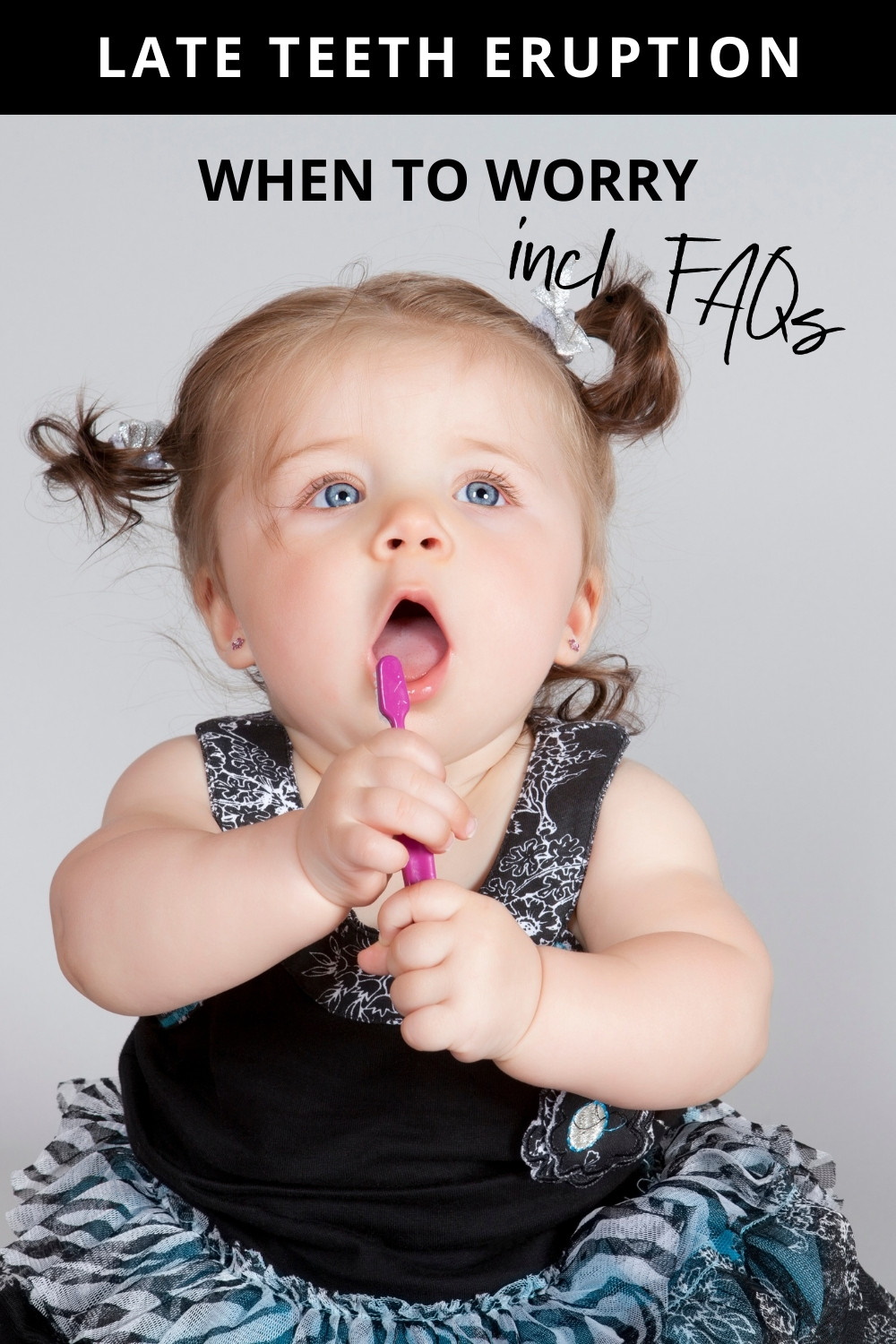

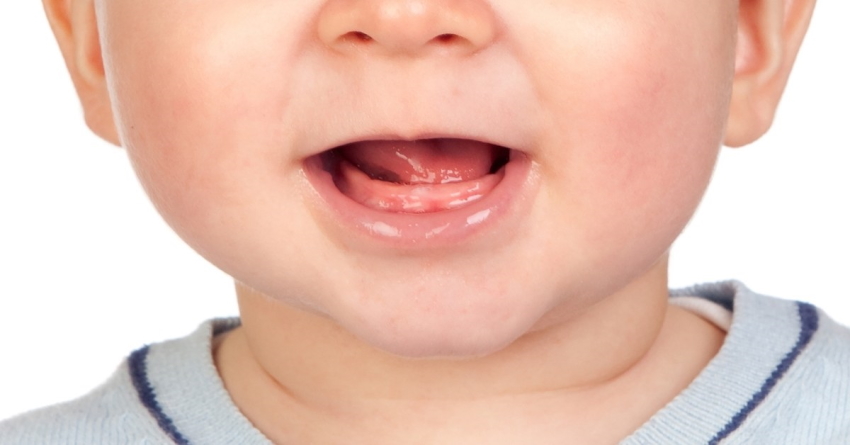
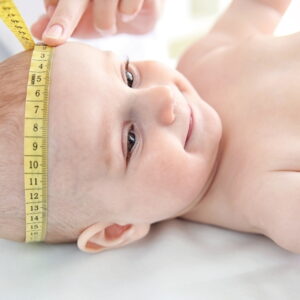
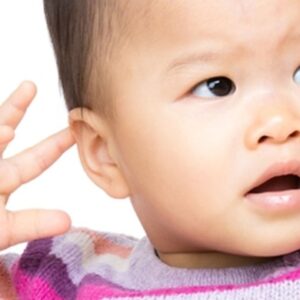
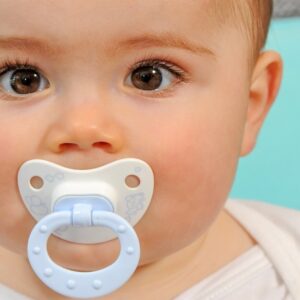



Hi my daughter is over 1 years old 2 months still no teeth she eats everything with no problem she has started to be more wingy on a night so I’m hoping we start to see teeth 🙈😴
Yeah let’s hope! :-) Let us know and if your baby needs some teething pain remedies, you have some inspiration here.
I was 1 before I got any teeth and I have normal teeth now and this didn’t affect my eating in any way. Both my children so far were later tethers being 10 months before any appeared and my husband was 6 months!!
My oldest son was walking and had no teeth. I wish that was the only concern I had about my grandson. When his teeth start to come they will pop out one right after the other. He will end up with a beautiful set of teeth , trust me you are blessed.
My son will be 1 in 6 days and he doesn’t have teeth and he doesn’t walk, he only standsup and holding. I am worried as he is not developing anything
Not having any teeth at 1 year is a bit late, but certainly within the normal range. Your baby’s doctor can look at his gums at his next health care visit, but most likely there are no reasons at1-year-oldrry. Often, one or both parents got their teeth late when a baby does. Check with your own parents if they can remember.
Regarding his walking; it is not late to not walk a 1 year old. Most babies start walking at around 13-15 months, but later than that is also normal. Check out our baby walking poll here. Among the parents answering, 40% of the babies started walking at 1 year old or later.
So please don’t worry, your baby is completely normal. Spend as much time as you can playing with your baby, that is a great way to help his development. You can read more about 12 month milestones and games to play here.
Warm wishes,
Paula
My daughter will be 1 on feb 6 and she has no teeth at all, but she’s my third and I have nothing to worry about. She is a great eater. Like all the comments i’ve read they will come when their ready, good luck to all those first time mamas!!!!
Your child’s not the only one out there. My daughter turn’s 1 on January 22, 2021 and her first tooth only just popped through on Christmas morning of 2020
Wow, its a great relief to learn that it is not only my son who is 11 months soon to be 1 year and with no teeth. I was real worried though his doctor said not to worry but reading all this is actually comforting
Wow! so pleased I saw these comments as my daughter is almost 11 months and has no teeth and not really sure if any close signs of any! my eldest daughter got her 1st tooth at 7 months so was a bit anxious that my youngest was ok! will give it a while longer then take her 2 docs of nothing happened as yet! but you guys have totally put my mind at ease! thank you!
It a relief to know that I am not alone on this matter. My son is 11mths soon to be 1 years old in weeks, and NO TEETH. His doctor told me not to worry. After all my son walks, runs, talks, and reads. Not to mention eats EVERTHING… the cutest gummy bear ever.
My daughter will be 11 months in a couple of days and has no teeth. Her doctor told me that they would come just to be patient. I guess just being a new mom i tend to worry about things anyway.
My son is also 11 months and he doesn’t have any tooth either but I still give him stuff to eat and my doctor say i must not worry about it will come in due time
My daughter is 11 months today and no teeth yet! Seems pretty normal. Glad to see she’s not the only one. Thanks for easing my worries Mamas!